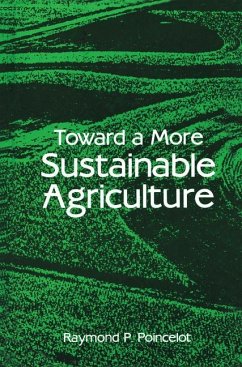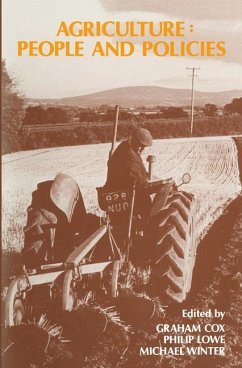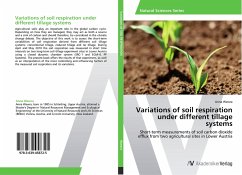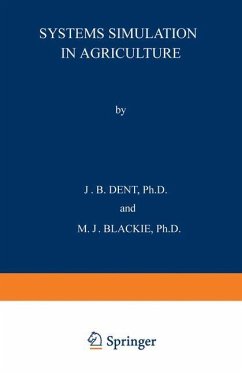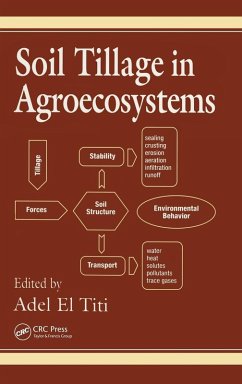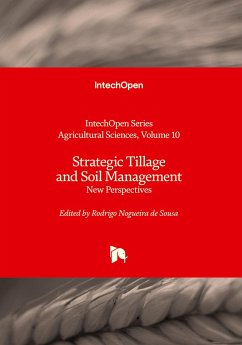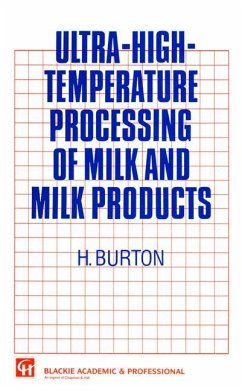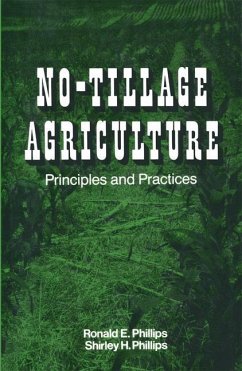
No-Tillage Agriculture
Principles and Practices

PAYBACK Punkte
39 °P sammeln!
No-tillage cropping systems and concepts have evolved rapidly since the early 1960s and are attracting attention worldwide. The rapid growth and interest is associated with increasing pressures for food production from a fixed land resource base with degrading effects of erosion, soil compaction and other factors becoming more noticeable. Research programs have provided many answers and identified new technology needed for success of the no-tillage crop production system in the past two decades and this has resulted in a rapid rate of adoption. Farmers played an important role in the early sta...
No-tillage cropping systems and concepts have evolved rapidly since the early 1960s and are attracting attention worldwide. The rapid growth and interest is associated with increasing pressures for food production from a fixed land resource base with degrading effects of erosion, soil compaction and other factors becoming more noticeable. Research programs have provided many answers and identified new technology needed for success of the no-tillage crop production system in the past two decades and this has resulted in a rapid rate of adoption. Farmers played an important role in the early stages· of development of the system and continue to play an important role in its improvement and rapid rate of adoption. This book provides an inventory and assessment of the principles involved in no-tillage concepts and addresses the application of the technology to practical production schemes. Selected authors and contributors have long been associated either in no-tillage research or application. They represent many disciplines interfacing with the complex interactions of soil, plant and environment. Personal obser vations by the authors in many geographic sectors of the world indicate the principles to be valid but application of the principles to be less uniform. The application of no-tillage principles requires considerable modification as variations in soil and/or climatic condi tions are encountered in different regions of the world.



